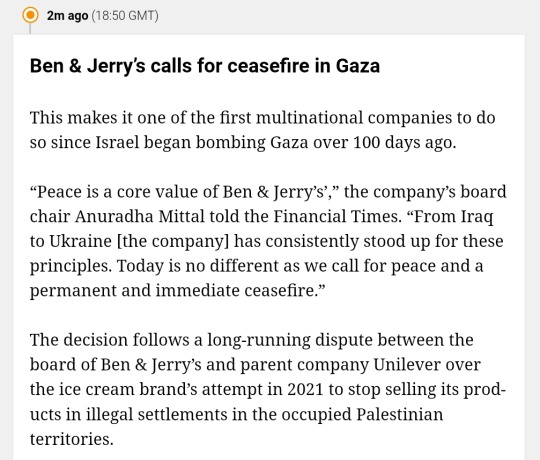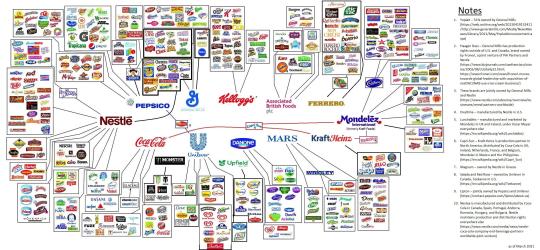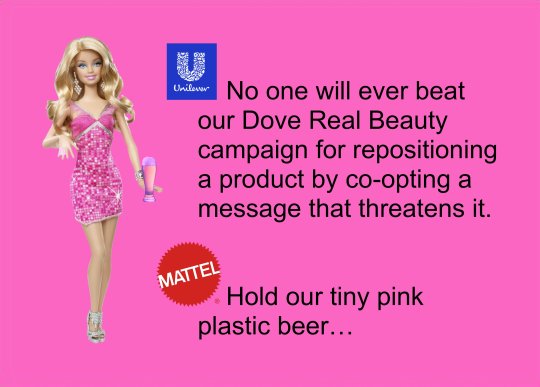#unilever
Explore tagged Tumblr posts
Text

Unexpected, nice job Ben & Jerry's, better late than never I guess
#free gaza#free palestine#gaza strip#irish solidarity with palestine#palestine#gaza#news on gaza#al jazeera#boycott israel#israel#Ben & Jerry's#Ben and Jerry's#Unilever#Anuradha Mittal
455 notes
·
View notes
Text
thinking of getting a "third eye" forehead tattoo but it's just this

#third eye#12 companies#550 brands#shitposting#PepsiCo#procter & gamble#Unilever#Nestle#General Mills#Associated British Foods#Mondelez#Danone#Kraft Heinz#CocaCola#Mars
59 notes
·
View notes
Text
Hey there, everybody, I hope you're all having a Happy Thanksgiving! Just be mindful, though, that there are companies that - despite massive evidence of Russia's war crimes - continue to do business in Russia, including Subway, PepsiCo and Unilever. Read the full list in Wikipedia's article on the International Sponsors of War:
#Thanksgiving#Happy Thanksgiving#Russia#Ukraine#Россия#Україна#Russo-Ukrainian War#Russian Invasion of Ukraine#War in Ukraine#Stand with Ukraine#Russian aggression#Russian war crimes#Genocide of Ukrainians#International Sponsors of War#Міжнародні спонсори війни#fuck Russia#Russian Imperialism#Stop Russia#Russia is a terrorist state#Subway#subway sandwich#Pepsi#PepsiCo#Unilever
17 notes
·
View notes
Text


1999 Unilever Snuggles the Teeny Bean Bear Plush
22 notes
·
View notes
Text

"My attempt at a Brand Map"
posted on Reddit r/coolguides
#brands#chart#categories#corporations#food companies#consolidation#Kellogg's#Mondelez#Coca-Cola#Pepsi#Nestle#Mars#Unilever#Ferrero#Kraft Heinz#General Mills#Dannon#Associated British Foods#Lipton#Wrigley#global conglomerates
27 notes
·
View notes
Text








InStyle Magazine | March 2011
Pages 342 - 361
#march 2011#instyle magazine#crystal light#unilever#taylor swift#bed bath and beyond#taylor swift beauty 2011#taylor swift 2009 - 2011#new balance#ulta beauty#gwen stefani#gwen stefani 2000 - 2011#vaseline#air optix#ciba vision#deep berry lipstick#floral hair accessories#weight watchers#jennifer hudson#cerulean blue#loreal paris#loreal paris academy#christopher coppola#early 2000s#early 10s#2011 aesthetic
2 notes
·
View notes
Text

Ultra-processed food producers are key actors in a complex global network of influence groups where they exert disproportionate power on global food policy and nutrition policy, according to a new paper.
Read More: https://thefreethoughtproject.com/health/junk-food-corporations-are-running-global-food-policy
#TheFreeThoughtProject
#the free thought project#tftp#childrens health defense#junk food#nestle#pepsi#mars#unilever#corporations
6 notes
·
View notes
Text

Popsicles for the New Three
6 notes
·
View notes
Text

9 notes
·
View notes
Text
Does Unilever support Israel? If so I gotta stop supporting it, please let me know if somebody knows, it's urgent, I can't contribute in this genocide
2 notes
·
View notes
Text
Smart strategy. GREAT pun.
Axe has hired Lil Baby to help promote a 'Logne Forgiveness program.
"AXE fans simply need to drop their Cash App $cashtag in the comments on our 'Logne Forgiveness TikTok posts for a chance to win their $150 refund… to help refund the cost of their old cologne."
It's a punny way to give guys permission to wear a fragrance that doesn't cost fifty bucks from a department store. Axe claims their new "Fine Fragrance Collection" scents are "formulated to smell as fresh as a premium cologne."
As Lil Baby says completely on his own and not at all written by the PR agency in a Source piece: “Y’all can smell just as fine with the new AXE and keep building your cash in the meantime. That’s how you do it when you’re the GOAT.”
#ads#advertising#adverts#creative advertising#advertising education#ad#PR stunt#marketing stunt#unilever#axe fragrance
3 notes
·
View notes
Text
Shell and Unilever are still operating in Russia.
Two of Britain’s biggest companies have been blasted for continuing to operate in Russia after it invaded Ukraine. Despite an exodus of firms after the war began last February, oil giant Shell is still trading Russian gas a year after promising to pull out of the country’s energy market. And Dove soap and Cornetto maker Unilever has been labelled an ‘international sponsor of war’ by the Ukrainian government as it continues to sell food and hygiene products in Russia. The broadside marked a difficult start for boss Hein Schumacher, who took over at the weekend. Campaigners at the Moral Rating Agency (MRA), which pushes for companies to exit the Russian market, have called on Schumacher to ‘do the moral thing’ and pull the business out of the country.
[ ... ]
‘A Cornetto ice cream seems innocuous until you realise that millions of them being sold each day can quickly pay for the launch of a missile,’ said MRA founder Mark Dixon. ‘Likewise, a bar of Dove soap starts to look pretty dirty when there are enough of them being produced to purchase a Russian tank.’
[ ... ]
Shell, meanwhile, has been accused by Ukrainian officials of accepting ‘blood money’ by continuing to deal in Russian energy. It is shipping Russian gas through a deal with Novatek, Russia’s second-largest liquefied natural gas (LNG) firm, which compels it to buy 900,000 tonnes per year from the Yamal Peninsula in Siberia.
If you are interested in boycotting, Shell is largely unambiguous about its products. However Unilever owns hundreds of brands. This graphic is probably incomplete.

Shell and Unilever are financing Russian terrorist acts like these.
All we know about Kramatorsk pizza restaurant missile strike that killed twin sisters
4 people dead, 34 wounded, 50 cars destroyed and 30 houses damaged: aftermath of Russian strike on Lviv
These are intentional acts of terrorism against civilians; such atrocities take place almost every day. The number of casualties caused by Vladimir Putin and his fellow Kremlin war criminals would have made Osama bin Laden envious.
Frankly, Putin should be regarded the way bin Laden was and should not be normalized. Western companies have had plenty of time to notice what is going on and leave Russia.
BTW, this is not the first time Shell Oil has been chummy with genocidal dictators...
Calls for Shell to apologise for ‘fuelling Nazi war machine’
#invasion of ukraine#western corporations#paying taxes to putin#financing russia's war machine#shell oil#unilever#international sponsors of war#russia#vladimir putin#genocide#war crimes#russia is a terrorist state#россия - террористическая страна#владимир путин#путин – убийца#путин - военный преступник#путин хуйло#геноцид#западные корпорации#союз постсоветских клептократических ватников#путлер#геть з україни#україна переможе#вторгнення оркостану в україну#слава україні!#героям слава!
2 notes
·
View notes
Photo

Kenya's tea pickers are destroying the machines replacing them
KERICHO, Kenya — Kenyan tea pickers are destroying machines brought in to replace them during violent protests that highlight the challenge faced by low-skilled workers as more agribusiness companies rely on automation to cut costs.
At least 10 tea-plucking machines have been torched in multiple flashpoints in the past year, according to local media reports. Recent demonstrations have left one protester dead and several injured, including 23 police officers and farm workers. The Kenya Tea Growers Association (KTGA) estimated the cost of damaged machinery at $1.2 million (170 million Kenyan shillings) after nine machines belonging to Ekaterra, makers of the top-selling tea brand Lipton, were destroyed in May.
...
Notable
A BBC documentary in February uncovered widespread sexual harassment and abuse on tea farms in Kericho, with 70 women having been abused by their managers at plantations operated by British companies Unilever and James Finlay.

(image source: Adobe Stock)
2 notes
·
View notes
Text

Unilever faces a tough challenge selling its plant-based meat brand, The Vegetarian Butcher, as consumer interest in meat alternatives fades. Once seen as a booming market, plant-based meat sales have declined amid growing concerns over ultra-processed foods.
Industry experts say Unilever may struggle to attract buyers, especially as the brand remains unprofitable, generating only €50 million annually. While meat producers looking to diversify may show interest, a high valuation seems unlikely. Similar struggles hit Nestlé, which scaled back its plant-based offerings. With market sales projected to drop further, the plant-based meat industry is at a crossroads.
#general knowledge#affairsmastery#generalknowledge#current events#current news#upscaspirants#upsc#generalknowledgeindia#world news#news#breaking news#government#unilever#vegetarian#vegetables#non veg#nestle#walmart#food#the butcher#consumerism#consumer insights
0 notes
Text
O Tênis do Sacrifício: Como Preparar Seu Parceiro de Carnaval para a Folia e Recuperá-lo Depois da Batalha
Créditos: Magic Studio O Carnaval é, sem sombra de dúvidas, uma das épocas mais vibrantes do ano. Entre marchinhas que ecoam nas esquinas, blocos lotados e trios elétricos que não param de tocar, os dias de festa são sinônimo de energia, dança e muitas caminhadas. No meio dessa maratona de diversão, um verdadeiro herói entra em cena: o tênis do sacrifício . Ele é aquele calçado resistente que…
#Carnaval#Cif Limpeza Milagrosa#Cuidados Com Calçados#Dicas De Limpeza#Limpeza Eficiente#Preparação Pré-Folia#Produtos De Limpeza#Recuperação Pós-Folia#Tênis Do Sacrifício#Unilever
0 notes




